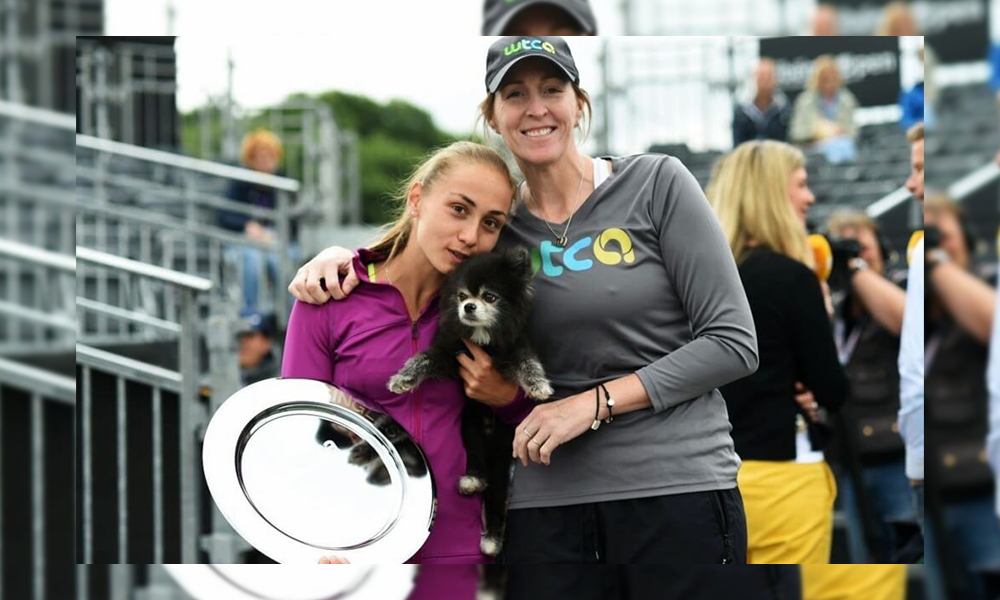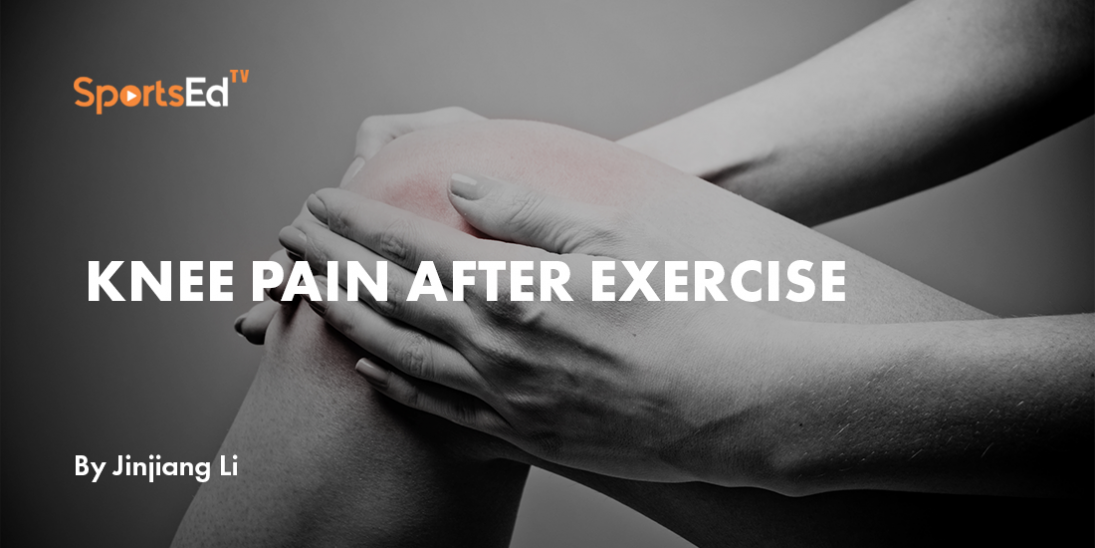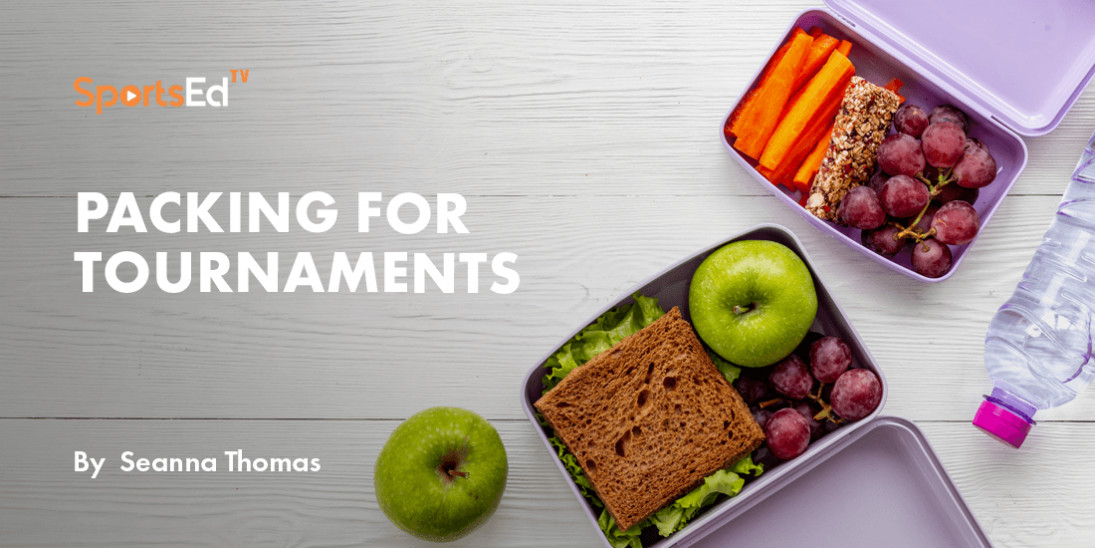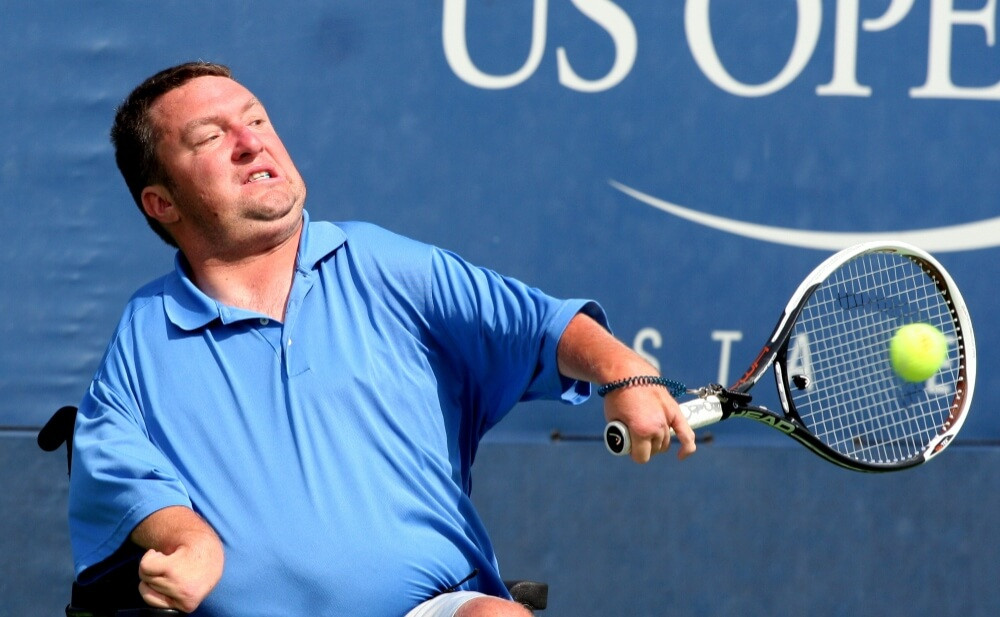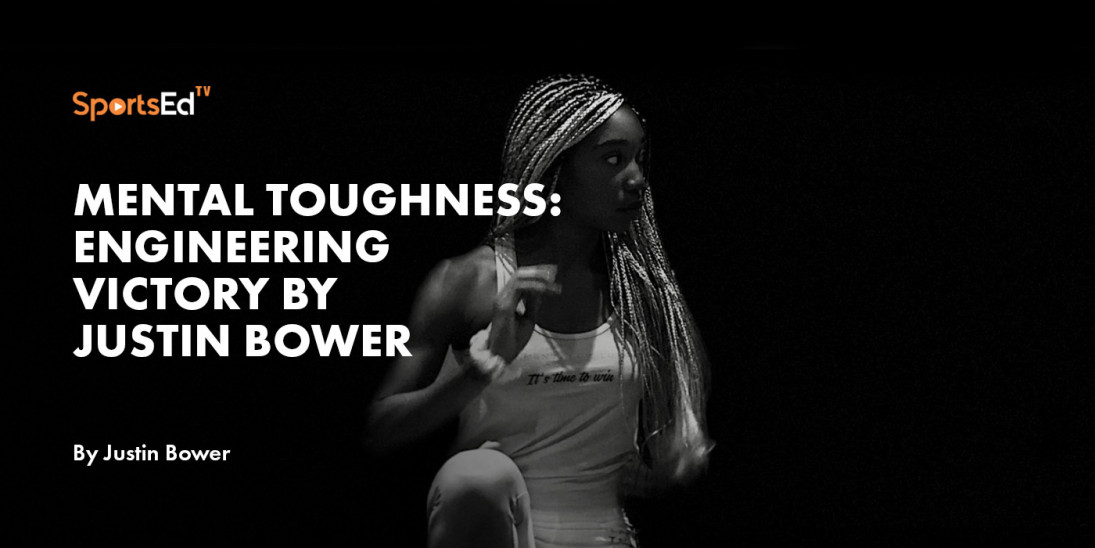Tennis
Welcome and thanks for visiting...

Expert Tips for a Great Coaching Career - a Conversation With Sarah Stone
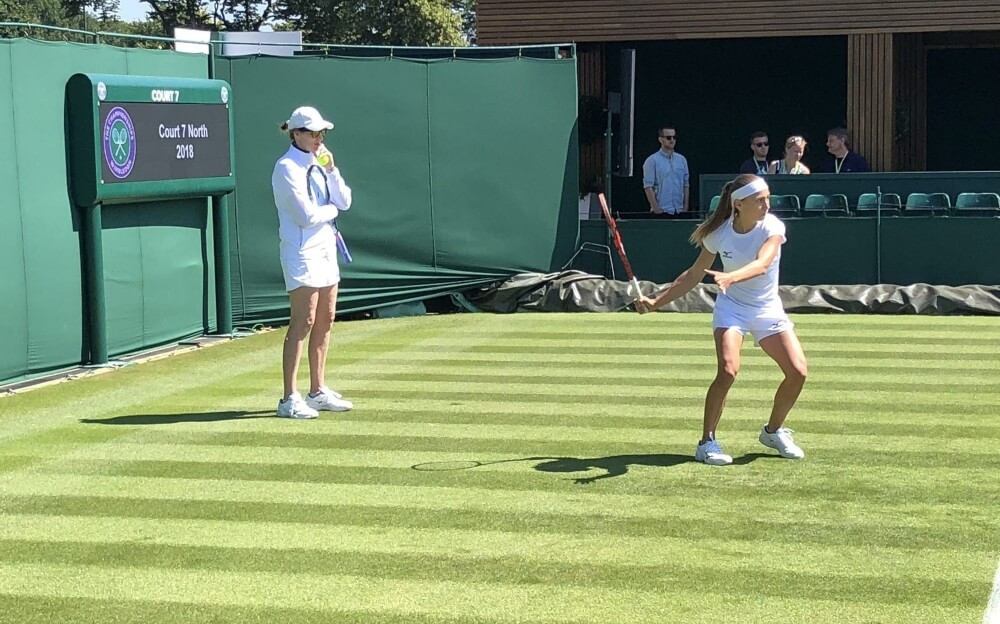
Sarah Stone one of the world top coaches joins SportsEdTV to give us insights on her professional coaching tennis career and what are the qualities and trays a tennis coach needs to have to be successful at all levels of coaching.
Sarah Stone is the founder and CEO of The Women's Tennis Coaching Association (WTCA) and is the former chairperson of the Women's Tennis board at the Professional Tennis Registry.
Stone is extremely passionate about using sports for social change. She is an Internationally experienced high-performance tennis coach, who has spent extensive time working with the world's best juniors and WTA tour players. Sarah’s coaching accolades include Grand Slam winning coach as the coach of Samantha Stosur who won three Grand Slam titles while under her tutelage, tour coach of six WTA tour top 100 players and private coach of over 20 athletes who have achieved division one NCAA athletic scholarships.
SportsEdTV: When did you coach Samantha Stosur?
Sarah: I coached her when she won three doubles Grand Slams, she did well, she was No. 27 in the world in singles and No. 1 in the world in doubles.
SportsEdTV: Your dad is a great coach. You learned a lot from him. If you have to think about three or four key things, what would say to female coaches that are just starting out?
Sarah: Two main things are be around the best coaches you can possibly be, the best minds, and just learn as much as you can possibly learn, not only reading. You need to be alongside whoever Anne Grossman or Michael Joyce, like you need to build personal relationships to advance your knowledge. That kind of ties into the second big, network as much as you absolutely possibly can, become part of the group. Tennis players hire from within and who you know, if you're not part of that world, as a female, you have zero chance of getting a look in.
Volunteer to go shadow player. We go to university for four years and that costs us two hundred grand. Pave your own way, go to save up some money and reach out to coaches and say, I want to shadow you. You have to get experience and know what is going on because otherwise you show up to a tournament and the players expect you to know how do you book a court, how do you do this, how do you do that. You can't go in blind, so you need to invest in yourself.
SportsEdTV: It's the little things that really make you a great coach. Now you're starting to actually coach, you're going to do it. So what are those little things that when you initially start and I'm sure some of it is trial and error that actually develop into coaching?
Sarah: Probably for female coaches, almost a sense of belonging. I feel like you need to get to know like the staff and the WTA team and how the tournament works and you need to get to know other players so you can set up practice for your players. If you come in and you don't know either coaches or other players, It's very hard to set up practice. One of the most difficult jobs for coaches, I feel it's just that. Connections to set up practice, texting ahead, "Hey, we're coming in on Tuesday. Do you want to set up practice for Saturday?” You just have to be ahead of it and if you don't have those established relationships, you just can't. That's probably the biggest thing. Another thing travel, logistics, knowing airports and connections and ground transport and things like that, if you can have a pretty good global view of how all the intricate operations of travel work, I think it's you're at an advantage.
SportsEdTV: What are the keys you think when you get to the tournament?
Sarah: Just experience, patience understanding your players. Knowing your way around the venue. There’s small things you're talking about, small things, but when you're rolling up to, let's say, Rome and you don't even know where to go around and you just feel a little out of your element, you don't feel that comfortable. If you can get experience and know, OK, when I walk into Roland Garros, this is where I go and that's how I get over there. Of course there are new tournaments, everyone's feeling at a new venue, but that's for everyone. If you're the only one in the room and you don't really know that when you go to Miami or whatever, if you just feel like a fish out of water all the time, it can be hard. Pretty much just knowing the ins and outs and how the tour works and all sorts of things like that. The entry system, I think that that's one thing, knowing how to look at the list if you're in the alternate list or you are next into the Qualies or which preference you should go for. You really need to understand how the tour works before you just throw yourself out there.
SportsEdTV: Obviously, it definitely helps if you have played like you did and you played enough where you obviously knew a lot of it.
Sarah: Yeah, and then then you know a lot of the umpires that umpired even the challenges when I was playing, now they are tour supervisors. They are still the same people. People come and go, but it's really a lot of familiar people. I can't stress it enough. It doesn't matter how great you are at coaching, if you don't understand how the whole system works, you could be the best CEO to come in almost all day to figure out how the intricacies of the company are, and in tennis, it's not that easy. You got to figure it out for yourself a little bit.
SportsEdTV: When you are by yourself, the competition is severe. You're looking at the top players or coaching somebody and you can get a little lonely and possibly a little bit scared out there because this is real, this is not a game. Describe that a little bit because everybody likes to talk about the great things, but in reality, these are the things that get you. Tell me a little bit about that.
Sarah: It's difficult because you're away from your family and your friends and I think you really need to be with a coach that you enjoy being around and on the flip side, you really need to work with a player that you enjoy being around because it can be really hard out there and it is lonely. If you have a partner that you can travel with, that helps significantly. Doing your best to keep in touch for Australians and South Africans to you are a long way from home most of the time, so you can set up an international base like you would have set up in the States. I kind of set up a little bit in the States and a little bit in in Europe at different times. Try to find some familiarity and some sort of grounding so that you do have a sense of being able to recharge because it's a grind. It takes it out of you living it out of a suitcase and just not being able to cook your meals at home and just have a sense of just stability is very unstable life traveling all over the world.
SportsEdTV: That feeling of having just a place, even with a small apartment or condo somewhere. I've got a place to go. So that's great, because all these things, if you don't get that part right in the coaching part, obviously gets a little bit more difficult. You're friends with Stosur, you grew up together. Probably, I think one of the greatest upsets in the history of tennis is when she beats Serena in the US Open.
Sarah: Yeah, It is remarkable.
SportsEdTV: I mean that because, some people are beating Serena today, but beating Serena at her prime.
Sarah: Yeah.
SportsEdTV: She is dominant, right?
Sarah: Yeah.
SportsEdTV: How do you think Stosur prepared for that match, because I'm sure you must have talked to her, what do you think made her win that match against Serena?
Sarah: I don't know specifically how she prepared for the match, but I know that she's very professional and doesn't leave anything to chance. Right back from when she was wearing white when we were playing doubles, if she was wearing an outfit that day and she won a match, you just keep wearing the same outfit. She just wash it in the sink. So maybe superstitious and I think some players do have those things. Don't forget that she'd beaten Serena at the French and she'd beaten, I think, Yankovich and maybe was Justine Henin, I don't know, but she had three huge wins in a row. Back in 2006, she'd beaten Lindsay Davenport, who was No.1 one in the world, she was always prepared for the moment. She could always play big-time tennis because she has a big game, she has a great serve and when you look at Serena and she's had success against Serena, anyone they could match Serena and serve well is a difficult opponent for Serena because if you don't serve well, you're not going to break her serve and she'll just bury you. But if she goes up against good service, they can really hold their own in the match. Specially the way that she would have put the ball up high on Serena and force her out of forehand corner. I think that's the way you go about your tennis and you go that way about every match. Prepared as best she can and not leave anything to chance. It's like sleeping, eating, practice. It's very much following routines and in life if you do everything you can, that's all you can do and if the result goes away, the result goes.
SportsEdTV: That's at all the levels. Now you get to the part where you are coaching Samantha, It looks to me like she won thirty-six doubles tournaments. What was it like to be with her at the first tournament?
Sarah: Well. The very first tournament that I remember was a WTA, we went and played doubles together in Hobart in 2002. We got to walk over in the first round and then the second round we played the number one team in the world. I was 19. We played Ruano Pascal and Suarez and I thought, wow, this is tough and we lost, we lost two and one, but it was fun. When I was a kid and I'd been around the Australian Open since I was six and it's kind of fun to be on the other side and just watch the way everything worked. You go on the tour and you need to learn a lot from the other players. When you're young, you don't know that much about it. I guess over time she wants to start playing doubles together and then I move towards coaching her doubles and it really started to go incredibly well with a friend of ours, Brian Stuart and I had some success and I won a couple of tour events, which was exciting. Then, the question came, they made the semi-finals of Wimbledon and I was friendly with Lisa Raymond through some friends anyway and she and Gigi Fernandez wanted to have a chat to us and we sat down and they said, "Well, we want Sam to play with Lisa for the rest of the year." It was very difficult because Sam and Brian were very, very, very good friends and it's difficult when they had that commitment to say, I need to go this other direction. But when it came down to it, I said to Sam, this is a decision that I feel is going to change your career.
Lisa just has this experience and this level in the game that I feel is going to help catapult your singles to new heights. It was a hard conversation and she had it with Brian and they stopped playing together.
Lisa and Sam played their first tournament together and found it was terrible. They played terribly. They played their second tournament together. Bummed, Lisa said to me, I don't know. I think this is a bad decision. I don't think we should play the open together. Like I've still got time to find another partner. I remember this conversation was at Lacoste. I was sitting on this grass and I was like, no, trust me, what you need to do is just really build up her confidence, like through the middle of the court, she's getting really tight on the backhand volley. You have to cover that and just keep lifting her up. I know she can do this and we tussle with it and she's like, OK, yeah. All right, I'll do it and then they won the next tournament. They won New Haven, and then the next week they won the US Open.
SportsEdTV: You're coming from down in the dumps and then the difference between winning and losing is a few percent and so are you coming from, being almost totally miserable and hit rock bottom and you are coming to the U.S. Open. So what did you tell them in their first match of that U.S. Open that they won?
Sarah: Well, we were lucky because we had Gigi Fernandez was there with us and Gigi won 17 grand slam. I think she could share some much better insights than me. I enjoyed having Gigi there and Lisa had been through it before. The good thing was they had their confidence from winning the previous tournament and I know early on, I think round three was a tough match. They played pretty well and they started getting a little bit of momentum and then their tough match, I believe, was in the quarters when they beat, I think it was Stobbs. They had a tough match and we had at the time John Alexander, he was the Fed Cup captain for Australia and that made for kind of like when you put Gigi and JA and you've got this Lisa crew kind of feel like you're part of this winning crew, like you've just won a tournament and then I just kind of kept winning. Then all of a sudden they were in the final of the U.S. Open.
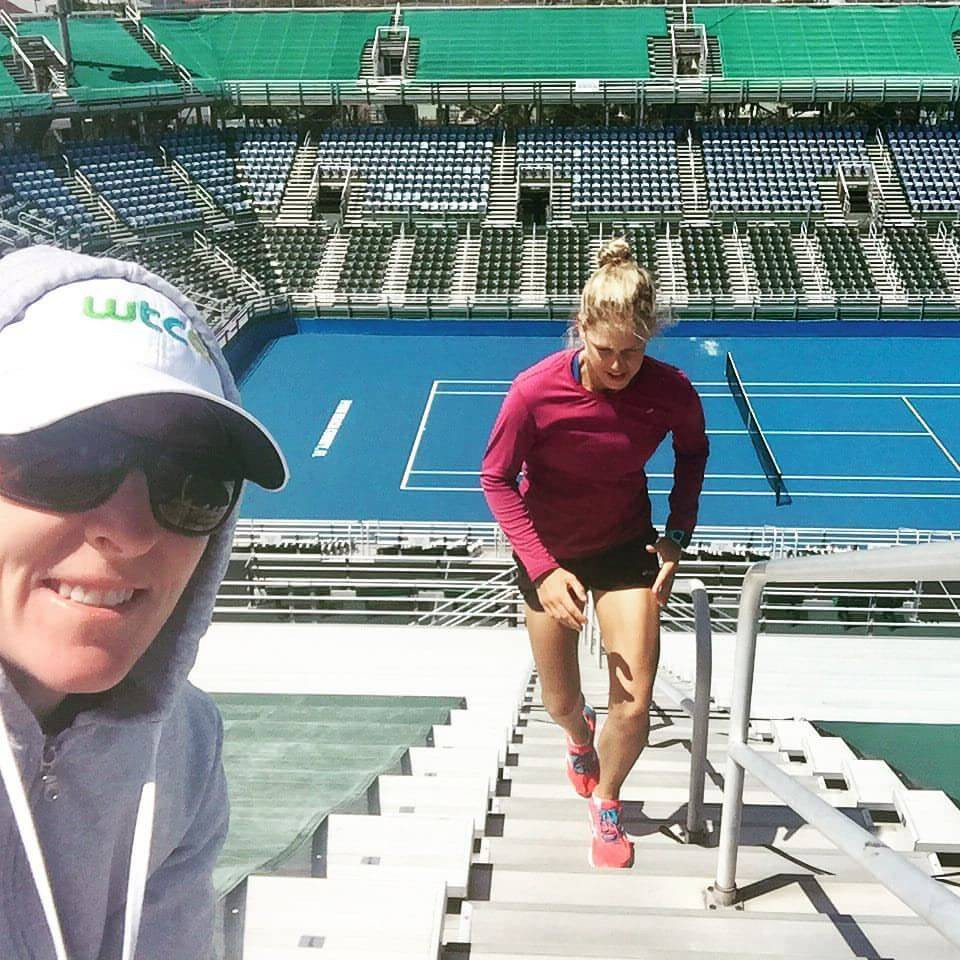
SportsEdTV: What were you thinking the night before the final? Your normal routine? Did you have a conversation with her the night before or before the match?
Sarah: Yeah, well, the thing is, Sam had previously won the Australian Open mixed. You have to remember that with Scott Draper. So she was actually technically she was a grand slam champion already. It wasn't so much like overwhelming, it was just always very much about tactically, how to play, that will play against Pennetta and Dementieva and they're a really good team and I think it was more just tactical, just getting ready to go and obviously excited and really hoping that they could win and they got off to a good start.
They won the first set. I thought, oh, yeah, they're going to go well. Then they lost the second and then you get a little nervous in the coaching box. You think, you really want them to be successful and they ended up winning the match, pulling it together. God, I know it was Pennetta, I hope it was Dementieva, but it was an unbelievable moment, especially in New York. I never thought about it that much. I was just like, oh, yeah, that's the way it goes. I always thought people win Grand Slams and now if I after every player I've coached. It's just so hard to win Grand Slams, but at the time I was like, oh yeah, that's just what happens. I had no idea, I was 23.
SportsEdTV: If you have 3 tips for people for big matches, let's say all levels for a beginner, big matches, for a college player. What would you say to tips to prepare for that big match?
Sarah: Well, preparation is everything. If you can go into that match and know that you've done absolutely everything you possibly could to be ready for the moment, you can go into the match and accept that what happens if it becomes out of your control. They might zone, you might get tight, all those sorts of things. So preparation would be number one. Number two just really tries to stay present and point by point, and no matter what, if your mind starts to rise you think, oh, if I win this, that or the other, you have to stay at one point at a time. It is cliche, but you can't get ahead of yourself. You play one point at a time and that if you get nervous, make sure you just move your energy because you need to almost shift the energy that stuck in your body. They just mainly the things that happen.
SportsEdTV: You are coaching Stosur and as I look for a record is kind of interesting, if I would think she wins every tournament, she wins the French, she wins the U.S. Open, she wins the Australian Open and loses, three finals in Wimbledon, and with her game, you would think she won Wimbledon every single time.
Sarah: Not really though, her forehand grips a little extreme. Just a little bit under, she’s not like on top of the racket and she needs time to set up. Her game relies on, that's why clay it kind of holds the ball. She's not really the fastest, but just like that reactive kind of athlete. She hits a big ball, she's going to live on. But there's certain times on grass where you have to react very quickly and you don't get a lot of time to set up and unleash into the shot they did when I was there. They did OK. I think I made the quarters of the doubles. I know she and Renee Stubbs made the final of the doubles. I think that and her serve it sets up the kicks of suits up on grass and doesn't break up, It breaks away. But that cross is not like all grass. It's it's totally a little faster. So that was fast, It is bouncy. It is kind of like a hard core, but it shoots a tiny bit. It’s just not that doesn't give you enough time even for shooting grass. It just doesn't give you time to just unleash into the shot.
SportsEdTV: If you had to give a tip to the world to adjust their game to a fast court like that, what would you tell them to have more time?
Sarah: Shortening your backswing, stay low, and the other thing it really shows who tracks the ball well, it's like almost hand-eye because it's that last part where the timing of the bounce to the strike, if you can track the bounce, well, you're able to hit the ball a lot better. Small adjustment.
SportsEdTV: When you were in practice in the events, what were some of the key tips or the big things that you worked on in practice that I think that can affect all levels of play? What are the most important four or five things that you can think of if you're working in terms of it?
Sarah: It's the same from pros to club players because I've worked with both. Contact point super important. You don't want it going all over the place, you want to stay, you want your swing to be the same every time and if your contact points is all over the place, you have to change your swing. You have to change your body weight. I think tracking the ball. When they are hitting, you need to split, stepping at the right time and making a very quick decision that you're about to hit a backhand, OK, that's going to my backhand and reacting quickly. React to their shot, not watching the shot. So that's tracking and contact points. Probably the biggest, get behind the ball. You've got to run all the way to the ball. You don't want to be reaching out from your body. You don't want to be reaching forward. You've got to move all the way up to the ball. So just make sure there are no shortcuts in the movement. You really only get out of it what you put into it and, I think, just kind of knowing how you play is very important. What do you do well? Of course, it matters what they do well, but if you keep doing things in a match and they push you to a position where you're hitting your backhand way behind the baseline and you can't do anything with it, it's not an ideal situation. So you have to understand how do you shift that from getting stuck into those rallies? How can you use your weapons in their game? Like how do you want to play the sport and have a good serve?
SportsEdTV: That's a huge point. I actually had that conversation with Ellis Ferreira was one of my students. Won open doubles and the mixed, I think they had match points in the US Open final and the point we came to him and we said, Ellis, what can you actually make? We know that you can hear the shot, that even Federer goes, well, that was a forehand role that foreign and I can run that backhand. There to winning 12 more doubles titles, winning two Grand Slams and two will doubles titles simply what can you make and know what you can make. Because you can use that at any time at all levels, so that was Ellis.
Sarah: The same for everyone, it's the same 2.5, it's the same for a junior kid, that's a 3 UTR, you got to know what you can do because if you keep doing what you can't do, it's just like giving charity away.
SportsEdTV: But can you actually make. You've worked with all levels of players. Again, if you have to put a team together, what are some key things that you think really matter?
Sarah: Those things go across the sport, I guess it starts with the coach for a player, a coach that doesn't think they know everything and wants to keep learning and evolving as a coach and as a person. Somebody that you can trust the people around you, that they are not just trying to take your money and I know that's not always easy, but look for things where you are able to build trust and go into these relationships very open, but very slowly and figure it out as you go. A team like someone who really understands the sport from the physical training side, whether you're a club player or a junior pro, you really need someone who gets tennis and how to train properly for tennis. It's not sport B, it's not always important to be ultra sport-specific, but just have an understanding of the sport and speed development I think is imperative for all athletes. Work with someone who gets how do you become faster, because if you're not fast, tennis is a time precious sport.
Just make sure the people there's a captain of the ship on whatever team it is and make sure everybody in the team knows their role and what their duties and keep open communication. I think there's not enough said about that because they can become a lot of friction. I've worked with other coaches, with players, and when they want to be the top and get the final say and try to undermine the main coach doesn't work. You need to be collaborative.
SportsEdTV: You also got to find people that can work together on everything. It makes a big difference. Now you coached Grand Slam finals, you've won Grand Slams, you've been at every tournament. You have to start out trying to be successful and now you've been successful. How did your coaching change once you won some of those Grand Slams?
Sarah: I guess maybe more buy in from parents and players thinking she must know what she's talking about. I guess that comes along with it. I never, ever really wanted to be a coach, but I am a coach, just something that happened. I think, I don't know, I guess there's a point where for some people, it might make them believe in themselves a lot more. It changes your life as far as it gives you more job opportunities. So that's definitely been one thing.
SportsEdTV: When you arrive at the tournaments, the players give you a little more respect?
Sarah: Yeah, I would say so. I'd say immediately after a tournament when Sam and Lisa won the US Open, everyone was like, wow, they're excited for a while and then they forget. Then when they won the tournament on the grass, we were having a chat and saying to Patty, I said, how are you enjoying hitting them on the grass? And then she said to us, well, you guys are the ones that know how to do well on grass and everyone knows who's doing what kind of thing. I don't know, I didn't get into that stuff. I didn't care about that. I didn't care about results and trophies and wins and stuff I care about just the satisfaction for me is being able to share and have an impact and if you're so busy chasing, feeding your ego and the superstar because you did this. I didn't live that sort of life. Everyone's the same to me. It doesn't matter if they won this or did that or they have this much money or have nothing or treat everyone the same.
I don't think people should get too overwhelmed or wrapped up in successes or failures because this too shall pass. I mean, life just keeps going, even if you can stay is the more enjoyment that you have in your life.
SportsEdTV: Well, there are three things you've told me why? I know now why you're such a great coach and you just mentioned one of them. One is your ability to keep it simple and stay on task. But also you love the process and I don't think you should undersell yourself as a coach. You are a typical Aussie don't be so hard on yourself, but you have to love it.
Sarah: I am a very good coach. I know that. I don't focus on just about the big results, because I think that and I like to share that with the kids, I think that is valuable because I can talk to them about what you said. I could say I know in this situation I was chatting to, I don't know, Svetlana Kuznetsova and this is what it was like for her when she was that age. I think if you have that real-life experience doesn't mean you had to have coached in that situation but you need to be able to share those insights with the kids and I think that is really the value of being able to bring that to the players. That's what's been really beneficial. And, of course, it's amazing. I've had an incredible career and I'm so thankful for my journey.
SportsEdTV: It is a great journey. It is a fun life at times. It's great that you can take that experience and share it with your younger players and you work with a lot of different levels.
Now you're done. You still do a lot of great things. You're now coaching a Fed cup player, Alexa Glatch, the time has changed from 10 years ago. How do you coach differently today?
Sarah: Well, yeah, eight years. I've been her coach nearly probably nine years actually.
It's changed a lot. She's gone from twenty two to thirty and understanding the sport more and being more mature and just having a better perspective because she was the 15 year old that was supposed to win all the Grand Slams and she had a lot of injuries and that's been very difficult. One thing that I've always tried to hammer home to her is your identity is not just a tennis player and that's what happens to tennis players and it can be emotionally destroying if results the number next to your name. Makes you feel fulfillment as a human being, and I think she we worked a lot on technical things, she's advanced a lot as a player. She's playing better than she's ever played. I think the difficult thing now is especially covid-19, but the sustaining desire to do the day in, day out is really tough. And that's which is remarkable that Serena and Roger and Venus Williams and you know, those guys, it's tough. I don't know how they have that tenacity to keep doing it. But that's the thing that gets hot. Desire.
SportsEdTV: So you're a WTA gold coach? Tell us about that, because I would like for the world to know what is a gold coach, I'm sure you don't just become a gold coach. What you have to do to be a gold coach?
Sarah: They've changed the criteria a little bit, I don't know specifically what it was, but at the time, initially you had to have coached, I think it was 20 tournaments over two years or you had to have coached a grand slam if you coached a grand slam champion or you coached a top 10 singles player. There was different criteria for that. It is quite a strict criteria because they really wanted to market and know who was coaching on the tour and said, they created this coach program, which it is still a young program, but it's growing every day and I think it' great that the WTA is investing in the coach side of the tour.
SportsEdTV: That is really a great thing because the coaches do get overlooked a little bit, even on the men's side, one of the thing I working on. So you have one of a very, very good site with very good content, WTCA. You've got this organization. Tell everybody what you call it and how did you started?
Sarah: The Women's Tennis Coaching Association. The reason that I founded it was I looked around and I saw no female coaches coaching really on the professional tour. The are maybe a handful. I thought that's something that I care about. I looked a little deeper into it and thought, well, what more is there? How can we make an impact on the sport? I knew that there was no education when it came to the specifics as to how do you work well with female athletes. 80% of registered coaches in the world are male. I mean, guys look at things through their eyes on how they would coach a girl and if she should just suck it up or if she would hit a forehand like them. You know, these things you look at it your way. I think to get more female coaches in our sport, it was imperative that we addressed the situation of gaining that advocacy of male coaches.
How do we engage the male coaches to help the female coaches? I felt like that was through creating education to help coaches work well with female players. If people like yourself were invested in being better coaches of female players, it meant that you care about women.You're an advocate for women and so we created this environment where you've got guys who genuinely care about equality, working alongside female coaches, and then there will be an environment where female coaches could feel more included.
I read stuff on forums about men just bashing women's tennis. They don't deserve to have one female student ever go their way. I wanted to really support the male coaches who are invested in women's tennis and that's how it started. It has rolled on pretty well ever since.
SportsEdTV: I think it's important. There's a room for both and the level of women's tennis today is extremely high. I sometimes say the women always move better on the backhand inside than the guys, maybe because the ball is a little flatter and if you don't get there quickly.
Sarah: So that's a good point actually, I never thought about that.
SportsEdTV: They can get away more with the serve. Their movement system tend to be in some ways better at them. Of course, men are sometimes more physical and they are bigger, but another side of it, but also feel like overall the level is very high. You can play three hundred and five hundred. I mean, everything is a match. The physicality, it has increased, it is unbelievable. I feel like women almost have a better base than men. I mean, they are really good. They're naturally more flexible. They are operating in that base. So the physicality of the women's game is at a very high level and the difference is that the men may be safe in three different levels. But in that one and a half or two where the women play most of the time, not all of them play like Stosur are just a few of them, but shape, form, shapes. But they still shape the ball. Trust me, they are shaping the ball.
Sarah: I mean, Novak he doesn't hit a really big shape ball either. Does he, I mean Delpo just nails the ball?
SportsEdTV: Well, to give it a system that he plays more at a level, one and a half to two and a half, Federer plays one to two, and then Nadal plays in a level two to three, a little bit higher, but that's determined by the grips. But the level of play on the women's tour and watching the matches are very, very entertaining. It has come a long way.
Sarah: And you're a real student of the game. That was the thing with the WTCA, If we wanted to bring along the better women's tennis, the better it is for the entire industry. It means everyone's going to be on board and let's keep more girls in the game. The more girls that are in the game, the more people that are going to be on the SportsEdTV platform. If girls don't want to watch, you're losing customers. Racket companies are losing customers. My dad's losing customers. That's just the reality. So if we don't do a good job of coaching female players, we're just shooting ourselves in the foot.
SportsEdTV: You've got to develop. I mean, I enjoyed coaching guys and gals, it's always the same. I'd really never cared where I was coaching a beginner or whether I was coaching a guy or a girl. I just enjoyed coaching coaching for me was fun.
Sarah: And that's why the SportsEdTV platform is going to be so awesome. This is from so many different perspectives.
SportsEdTV: I get it from five-year-olds, seven-year-olds tour players, and I feel like we can make a difference, and that's really one of the reasons we're talking today about making a difference. How would you describe SportsEdTV?
Sarah: I think it's an awesome initiative because there's a lot of content out there, but there's not a lot of great content. It's quite difficult for someone who's not a coach to figure out like a parent, what is a reliable source and what is not a reliable source. It's very fragmented and all over the place. If there's a central platform, which is what you've created and it's going to just take over the world is, it's reliable. You don't want parents to get screwed around by coaches selling them just garbage, empty promises. We need that central space where you can bring in the great female coaches, great male coaches, and it's kind of vetted that the information is solid and also the camera work, because if you want a maximum engagement, if it's shaky, pixellated vision footage, well, the engagement's not going to be any good either, so the high def and great educators, I think, is the thing what separates and people can trust the brand and that's what's needed. I just see garbage in social media. I see some great stuff. But you've got to figure out how do you filter through that? Nobody wants to filter through it. Let's just have a great central platform.
SportsEdTV: You just covered through key things of why SportsEdTV was formed to create a reliable platform to put it out in high definition ESPN high quality and continue to improve the quality to get the best coaches.
I'm very excited. We're releasing some more coaches, a Russian coach and again, these are guys. But I'm also really excited because. I want to shoot your tips in movie production and promote you so it works both ways. The branding is important, but it's very important if I can brand yourself and I can brand other top women's coaches and do Emma Doyle, which is also a great coach, I know you'll play a little double somewhere. I mean, it seems like.
SportsEdTV: Well, I just want to congratulate you for the amazing career you had even as a player and also as a coach and all the spectrums and the level you coached at and you said some great things that maybe pass by other people. But you're willing to talk about 2.5 players, beginners, you're willing to coach everybody. You're willing to coach grand slam winners. You've won at a grand slam level. So congratulations and in SportsEdTV we are honor to have you on the platform and I hope we can do things together.
Sarah: Thanks, I love what you're doing and anyone who's invested in growing the game, they are friend of the WTCA. Keep up the good work and can't wait to get filming.
SportsEdTV: As a player and as a coach, how do you find the balance between being teaching or playing patterns, as opposed to being instinctual on the court. What do you think you identify with?
Sarah: I’m not a coach or a player who likes to just focus on patterns like do this versus do that a lot, but I'm not huge on talking about the game plan. I know one of my best friends coaches on tour and she goes through four hours of footage of the opponent. I instead like to focus on what the player does well with their game. One of the things we use to practice a lot is we would go I am feeding go to cross one line off the forehand, go changing direction. You got to be able to pull the trigger down the line and you've got to be able to pull the person out of court. I think I would practice patterns, but I wouldn't think, like drilling some player's head, I didn't enjoy playing tennis like that. I used to come in on the return of serve or drop shot or like serve under arm or like to do ridiculous things. I think you have to play within the person's personality and coach within the person's personality. Enjoy the sport like they do like Alexa. But the UACA hammered that she had to be served, first ball huge. She just never grew up liking to play tennis like that. She, if I could match a player, likes to play like Marrie, but her body can't take it. She likes to slice and work the long points and that's why she enjoys the sport. You can't take that away from people and if you put these strict parameters for patterns. I know a certain amount has to be instinctive.
SportsEdTV: You're saying that a player's game style should come from the personality and then you should grow up on that.
Sarah: Hundred million, in my opinion. Because they play like a person's life reflects on the court. I was just like, serve and volley, like all over the place on this big vision person, I like to do extreme exciting things. Then there are players who are very low key. You can't just tell them that they're not trying. Like, Karolína Plíšková is a very low key kind of person. But she was number one in the world. Should you call it a fist pump between every point and jump up and down on her toes like Sharapova between everything. It's athletes centered and you have to do what works for the person.
SportsEdTV: Absolutely. Well, we'll let you go, I know you've been on this call for a while.
Sarah: That's fine. I'm happy to answer whatever you guys need, but thanks for having me on. Can't wait to work with you guys and looking forward to it.

